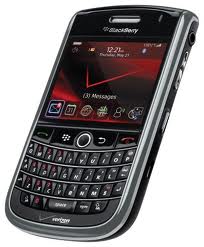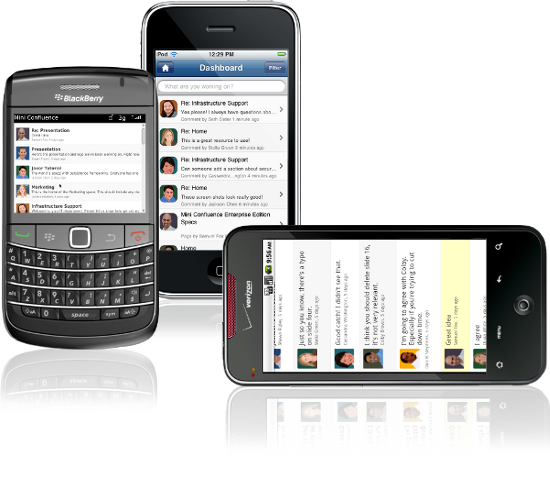Balance or Separation?
According to this Reuters story, a new BlackBerry Application called 'Balance' that is designed to support a virtual segregation of 'official' corporate data and email from a user's personal data and applications, is expected to be released in the North American market in the next few months.
The idea behind 'Balance' seems to be BlackBerry's realization that many of their corporate users also purchase and utilize a second, personal smartphone, often an iPhone or Droid, partially for the more robust application ecosystem, but also due to a sense that their trusty BlackBerry is a 'work' device, and it seems best to keep their Facebooking, Tweeting, and texting activities completely separate from 'real work' done on the BlackBerry.
From the Reuters piece on Balance:
RIM's solution is software called BlackBerry Balance, which will allow corporate IT departments to retain control over data such as business-related email sent via a BlackBerry Enterprise Server, or BES, while keeping the Web browser and an employee's social networking and photographs separate
Employees are normally and traditionally inclined to keep their personal activities personal, and enterprise IT and Information Security professionals are probably happy with that kind of separation as well. Confidentiality, control, encryption - these are the core objectives of the IT staff. Privacy, freedom, and demarcation - these are the motivations of the employees that elect to carry both a work smartphone and a separate device for personal use.
So when viewed in that light, 'Balance' seems like a win-win. Corporate IT gets the assurance that the company issued BlackBerry applications and data are kept separate, secure, and distinct from whatever personal shenanigans are going on over on the other side of the smartphone. Facebook status updates, the odd Tweet, pictures from the weekend - they all stay safely on their side of the wall, not to impact or harm the important business of work happening on the company side.
The BlackBerry, equipped with Balance becomes a handheld version of 'Good Cop/Bad Cop', or a high tech manifestation of the old angel on one shoulder, devil on the other shoulder gag.
It is a cool idea, and likely one that will make corporate IT happy, as well as any employee that suddenly feels emboldened to drop that second, personal device and maybe save a few bucks (as well as some pocket or purse space).
But looking at 'Balance' from a different perspective, I wonder if it really is an application that supports the attitudes and expectations of a rapidly retreating age. In the Work/Life arena the professionals I know that are most engaged and invested in these kinds of issues almost universally loathe the term 'balance' when it is introduced to these discussions. They prefer terms like 'fit' or 'flow'. The idea being that 'balance' implies and suggests a constant give and take, one side always fighting against the other, always at odds as work and life, corporate and personal fight for attention.
More progressive and modern approaches to the debate, and seemingly the preferred approach of more and more younger workers, is that corporate and personal activities and networks naturally flow more freely, and blend more readily. Many would not think twice about asking their Facebook friends or Twitter followers for advice or guidance about a work-related matter. Why should their access to and ability to leverage their communities be partitioned and segregated either physically or virtually?
In fact, why would any smart and evolved organization place barriers or walls around their people, whether these walls are real or programmed into the cold memory board of their corporate BlackBerries?
On balance, 'Balance' seems to be a product that will deliver functionality that many organizations will say they want, but I wonder if it is capability that they really need.

 Steve
Steve


